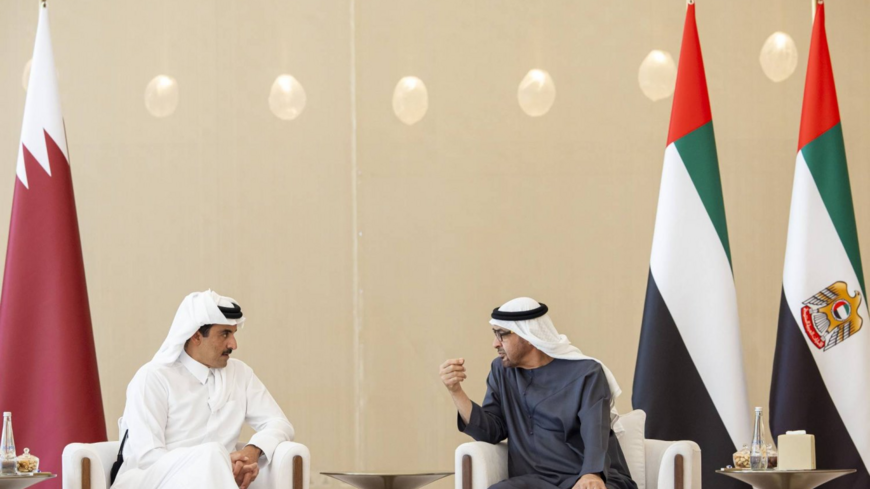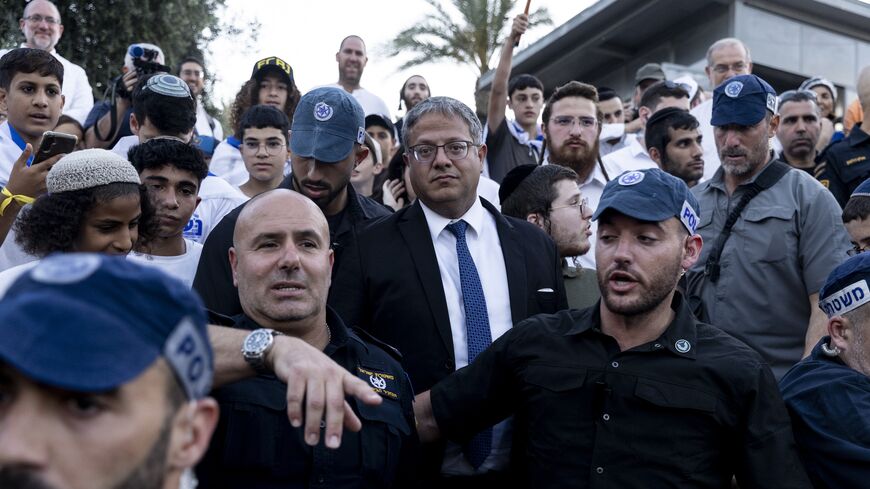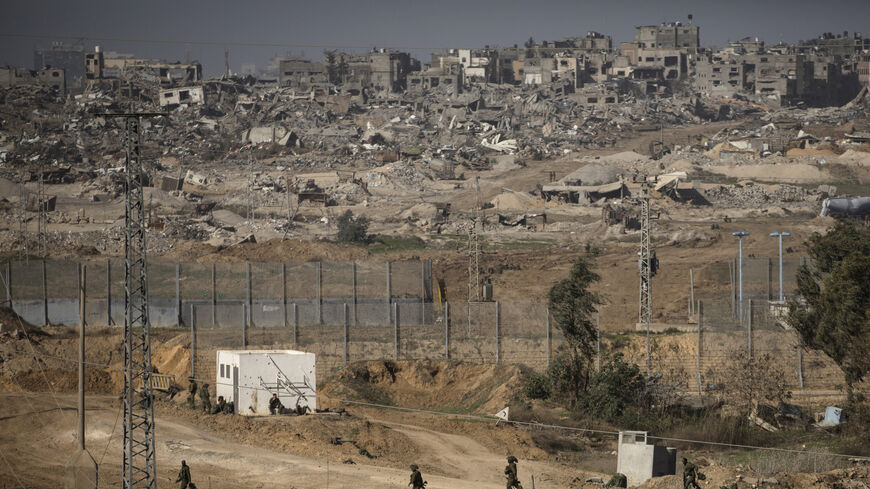UAE president to visit White House as frustrations mount over Gaza endgame
Abu Dhabi has hardened its stance on Israel as Gulf states consider their role in rebuilding Gaza.

DUBAI — US President Joe Biden will host United Arab Emirates President Sheikh Mohammed bin Zayed at the White House on Monday, amid growing Emirati concerns over the ongoing war in Gaza. This marks Sheikh Mohammed's first visit to Washington since becoming president in 2022.
According to the White House, the leaders are set to discuss a range of key topics, including the Gaza conflict, cooperation on artificial intelligence, the crisis in Sudan, and several other regional and global issues.
The visit comes as the United Arab Emirates is beginning to show increased frustration with Israel's handling of the Gaza crisis, as the conflict drags on with no end in sight and a mounting death toll, analysts say.
Abu Dhabi normalized relations with Israel in 2020 after signing the Abraham Accords. But the relations have soured with the current Israeli government over the Gaza war. Frustration with the lack of a foreseeable conclusion to the conflict, now in its 11th month, came to the fore when the UAE's foreign minister, Sheikh Abdullah bin Zayed Al Nahyan, posted on the social platform X that "the UAE is not prepared to support a day after the war in Gaza without the establishment of a Palestinian state."
الامارات غير مستعدة لدعم اليوم التالي من الحرب في غزة دون قيام دولة فلسطينية
— عبدالله بن زايد (@ABZayed) September 14, 2024
The post, which was viewed over 1.8 million times, was a poignant statement intended to reach a wider audience, with more impact than an official statement, retired professor of political science Abdulkhaleq Abdullah told Al-Monitor.
"I think this is an expression of frustration with both the Israelis and the Americans. They are talking too much, but they're not doing the walk," he added.
On Wednesday, Saudi Arabia's Crown Prince Mohammed bin Salman also echoed the sentiment during a session of the Shura Council, the country's deliberative assembly.
"The kingdom will not stop its tireless work toward the establishment of an independent Palestinian state with east Jerusalem as its capital, and we affirm that the kingdom will not establish diplomatic relations with Israel without that," he said.
Israel and Saudi Arabia had been working toward a normalization deal, with Israeli Prime Minister Benjamin Netanyahu saying they were on "the cusp" of an agreement just prior to the Oct. 7 Hamas attacks and the subsequent war in Gaza.
Al-Aqsa concerns
The UAE's position follows a steady increase in rhetoric amid continued impatience over the Israeli government led by Netanyahu and his right-wing allies.
The UAE, along with its Gulf allies, strongly condemned comments by Itamar Ben-Gvir, Israel's minister for national security, on plans to build a synagogue within the Al-Aqsa Mosque compound, known to Jews as Temple Mount, one of the holiest places in both Islam and Judaism.
Israeli right-wing incursions on the mosque complex led by Ben-Gvir have preoccupied discussions Sheikh Abdullah has had with his Jordanian counterpart, Ayman al-Safadi. Jordan oversees the management of the holy sites through an established endowment known as Waqf. The UAE has repeatedly called on Israel to rein in settler activity, respect the historical and legal status of Jerusalem, and for the establishment of a Palestinian state.
'Day after' scenarios
Sheikh Abdullah's latest comment on not being involved in the "day after" the Gaza conflict does not specifically underpin a shift in thinking, Afshin Molavi, senior fellow at the Foreign Policy Institute at Johns Hopkins University School of Advanced International Studies, told Al-Monitor.
"The UAE likely does not want to be in a position to be engaged in post-conflict reconstruction unless there is a viable, internationally accepted Palestinian state," he said.
"After all, if such a state does not exist, the possibility of future conflict exists, no matter how much reconstruction has been achieved," he added.
The UAE is not involved in mediating a cease-fire in Gaza. The United States, Qatar and Egypt are acting as mediators between Israel and Hamas.
Humanitarian relief
While Abu Dhabi has not played a political role in bringing the conflict to a halt, it has — through the Abraham Accords signed with Israel in 2020 — played an active role in humanitarian aid relief.
The UAE hosts close to 2,000 wounded and sick from Gaza, as well as their families, in a humanitarian city in the country's capital.
Through its working relationship with Israeli authorities, the UAE regularly evacuates the wounded and injured from Gaza, though its efforts have come under mounting challenges following Israel's closure of the Rafah border.
Former US diplomat and negotiator Dennis Ross noted that Sheikh Abdullah's strongly worded statement could be an indication that, should cease-fire talks prove successful, the UAE could play a role.
"This could be simply calling attention to what will make it easier for the UAE to play and fulfill a role," Ross told Al-Monitor.
Post-conflict rebuilding
Israel shows no signs of slowing its operation in Gaza, even as the death toll in the enclave climbed above 41,000 with more than 90,000 injured, according to local health authorities.
Israel is also now in the third week of a large-scale operation in the occupied West Bank — its biggest in the territory since the early 2000s.
Talks about a "day after" future for Gaza and Palestine are "misplaced," Molavi said.
"We need to be talking about 'the generation after.' The destruction is massive and unimaginable," he said.
"It is likely that the UAE as well as other regional actors understand the massive generational scale of the rebuilding process and probably wanted to ensure that, at minimum, a viable Palestinian state would be needed," he added.










